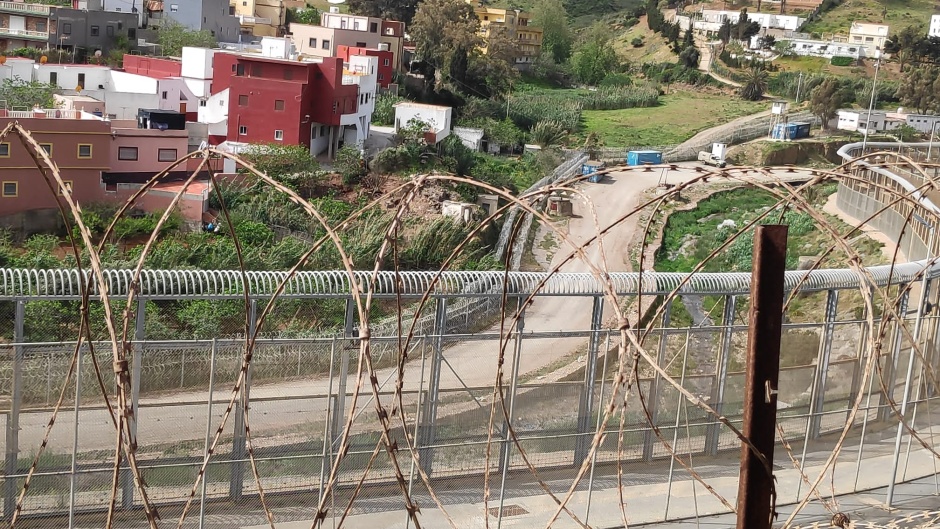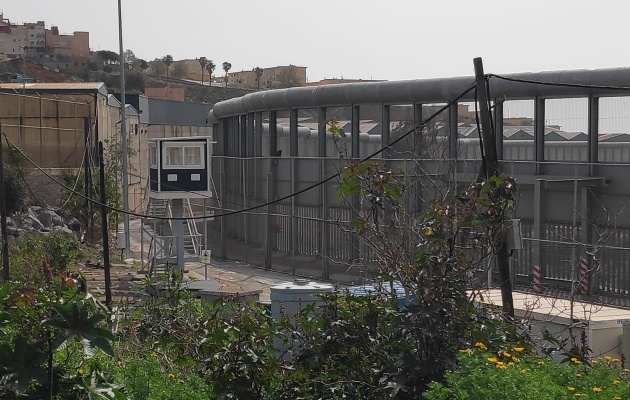We asked 3 migration experts what they would say to young people travelling to North Africa in the hope of crossing the sea and reaching European shores.
 A section of the border between Morocco and Spain in Ceuta. / Photo: Noemí Mena.
A section of the border between Morocco and Spain in Ceuta. / Photo: Noemí Mena.
Spain has seen this summer how over 5,000 migrants arrived to its shores illegally, taking very risky routes.
Hundreds of young people from both sub-Saharan countries and various regions of Morocco were met by 7,000 police and riot police deployed by the Moroccan authorities to cut off access to the Spanish city of Ceuta on 15 September. They had coordinated via instant messaging and platforms such as Tik Tok.
Migration experts consulted by Evangelical Focus agree on the need to provide a realistic picture of the future that awaits those who want to reach Europe by whatever means possible.
“I do think there is an idealisation on the part of young people from many of these countries, those who are waiting for an opportunity to cross into Spain”, says Noemi Mena, a busienss professor and a researcher on migration trends.
“People who are looking for a better future should be given a realistic view of the difficulties they will have with language or finding a job that matches their skills or dreams”.
Mena, who has led projects to help refugees and migrants to integrate in the labour market in Europe, says it is crucial to“work with organisations in the countries of origin” to make sure their own young people get a real picture of what they will find in the northern hemisphere.
“Europe is not a panacea, nor the land of gold: life is complicated and different from your culture”, she says.
Cropped.jpg)
[photo_footer]In recent years, thousands of North Africans and young people from other regions of Sub-Saharan Africa have attempted to swim across the border between Morocco and Spain. / Photo: Noemí Mena [/photo_footer] Julia Doxat-Purser, the socio-political representative of the European Evangelical Alliance (EEA), imagines the expectations of a young person waiting to jump into the water to cross the sea border in Ceuta.
“I would say to that young person that life may be challenging where you come from. You may feel you have no options but to risk the swim to Europe. I am sorry that it feels like this for you. But please know that the challenges will continue”.
Doxat-Purser, who has been involved in projects like the Refugee Highway Partnership (RHP) and the anti-trafficking movement European Freedom Network, adds: “If you have been given promises of an easy life, please be sceptical. There are so many dangers ahead of exploitation, of inescapable debt, of being sent home and worse”.
Conchi Rodríguez, director of the NGO Diaconía, told Evangelical Focus compassion and help is needed for all who risked their lives hoping for a better future.
“These people are already at almost final point of their migration project. Some with months of itinerary, having left their family behind. Some of them, the luckiest, have been able to raise a sum of money that has left their families, friends or community even poorer, to pay the mafias that have taken them there”, she says.
“In the case of women, many have suffered rape on the way, and many have become pregnant as a result. They now are about to achieve their dream of reaching Spain, Europe and the place where they believe they will find an opportunity for themselves and their families, whether they come with them or travel alone”.
“What can I say to them?”, Rodríguez asks. “Well, I wish and pray to God to keep them on that hellish journey to avoid it being their graveyard”.
Diaconía works with the government to host over 500 asylum seekers in seven regions of Spain.
“Perhaps I should also warn them of the difficulties they will encounter when they arrive, that their journey will not be over when they set foot on land”, says Rodríguez, “that they will still have to go through vicissitudes and fight against rejection, discrimination and criminalisation, as many will accuse them of coming here to commit crimes”.
“And perhaps I would also make them aware of the difficulties they will encounter in realising their dream of having a decent job, a cure for their illness or ailment or that of their sons or daughters, a roof over their heads under which to live in peace, freedom and security. Of course, I would tell them that they will also find people, administrations, NGOs who will be there to help them achieve this”.

[photo_footer] A surveillance post at the border. / Photo: Noemí Mena. [/photo_footer] Noemi Mena points to the need to make sure people fleeing violence get all the resources they need. “For example, many of the people who are now arriving in the Canary Islands this summer come from Mali, a country that has been in a civil war for a long time, although it is not in the news”.
“Priority” should be given to those who have fled their country not only because of war but of other complicated personal situations, says the expert.
And she specifically points to the reality of “migrant women, ans issue that is not usually dealt with, beacuse their stories do not appear in the media”.
[analysis]
[title]One more year[/title]
[photo][/photo]
[text]At Evangelical Focus, we have a sustainability challenge ahead. We invite you to join those across Europe and beyond who are committed with our mission. Together, we will ensure the continuity of Evangelical Focus and Protestante Digital (Spanish) in 2024.
Learn all about our #OneMoreYearEF campaign here (English).
[/text][/analysis]

Las opiniones vertidas por nuestros colaboradores se realizan a nivel personal, pudiendo coincidir o no con la postura de la dirección de Protestante Digital.
Si quieres comentar o